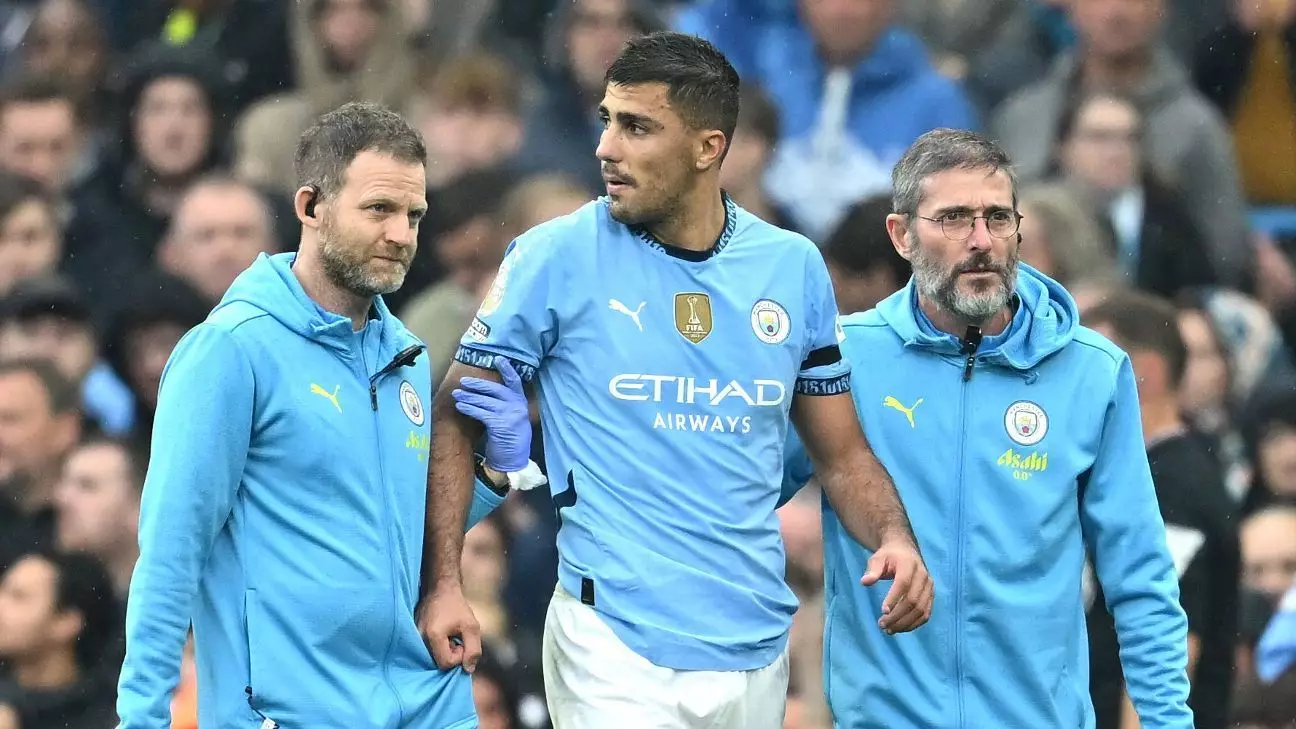The recent injury to Manchester City midfielder Rodri has cast a shadow over the team’s aspirations for the current season. Following tests that indicate a likely anterior cruciate ligament (ACL) tear in his right knee, Rodri is set to face surgery and a long recovery period, which could potentially sideline him for the remainder of the season. This news brings with it deeper concerns, not only regarding the club’s immediate performance but also the strategic implications of losing a key player as they pursue their fifth consecutive Premier League title.
Rodri’s injury occurred early in City’s recent match against Arsenal, where he had stepped onto the pitch for his first Premier League start of the season. His substitution in the 21st minute was not just a tactical decision but a necessity, as he went down clutching his knee—an injury that highlights the grueling demands placed on professional athletes today. This unfortunate event is a stark reminder of the fragility of player health amidst an intense schedule.
This injury could not have come at a more inconvenient time for Manchester City. Currently, they sit at the top of the Premier League standings, but with the likes of John Stones stepping up during the match to secure a draw, the team’s depth will be tested like never before. Rodri, who played a pivotal role in Spain’s recent Euro 2024 victory, is not just a key player due to his on-field contributions but also because of his leadership qualities. With his absence, Pep Guardiola will need to reassess his tactical approach and possibly look to his bench for players who can fill that void.
Furthermore, the ripple effects of Rodri’s injury extend beyond City’s lineup. Discussions among players regarding the overwhelming fixtures they face are becoming increasingly pronounced. Rodri himself suggested that players might be on the brink of striking over their demanding schedules, stating that this sentiment is widespread among professional athletes. This advocacy for player welfare highlights a growing concern within the sport—balancing competitive integrity with the health of the players.
With Rodri sidelined, the managerial staff must formulate a solid game plan to navigate the challenges ahead. A pivot in strategy incorporating squad rotation could lessen the strain on remaining players, while simultaneously providing opportunities for less experienced individuals to shine. This scenario may foster a newfound resilience in the squad and even lay the groundwork for future talents to emerge, albeit amidst considerable pressure.
Rodri’s injury not only poses a considerable setback for Manchester City but raises crucial questions about the sustainability of player welfare in modern football. As the team faces an uphill battle to maintain its momentum, the broader implications of Rodri’s absence invite a necessary dialogue about the future of scheduling within the sport. As Manchester City looks to maintain its dominance, the stakes are higher than ever, both on and off the field.

